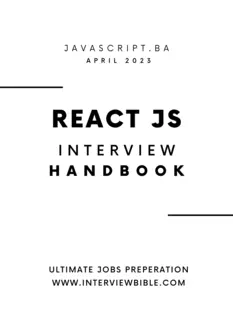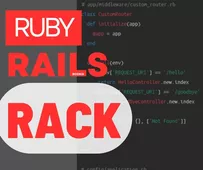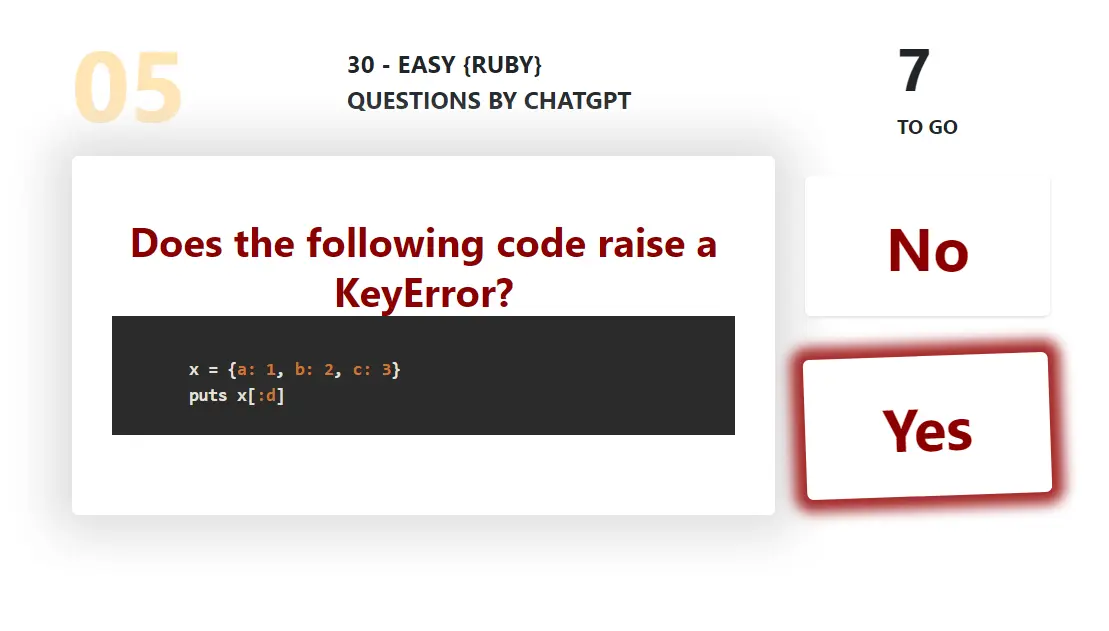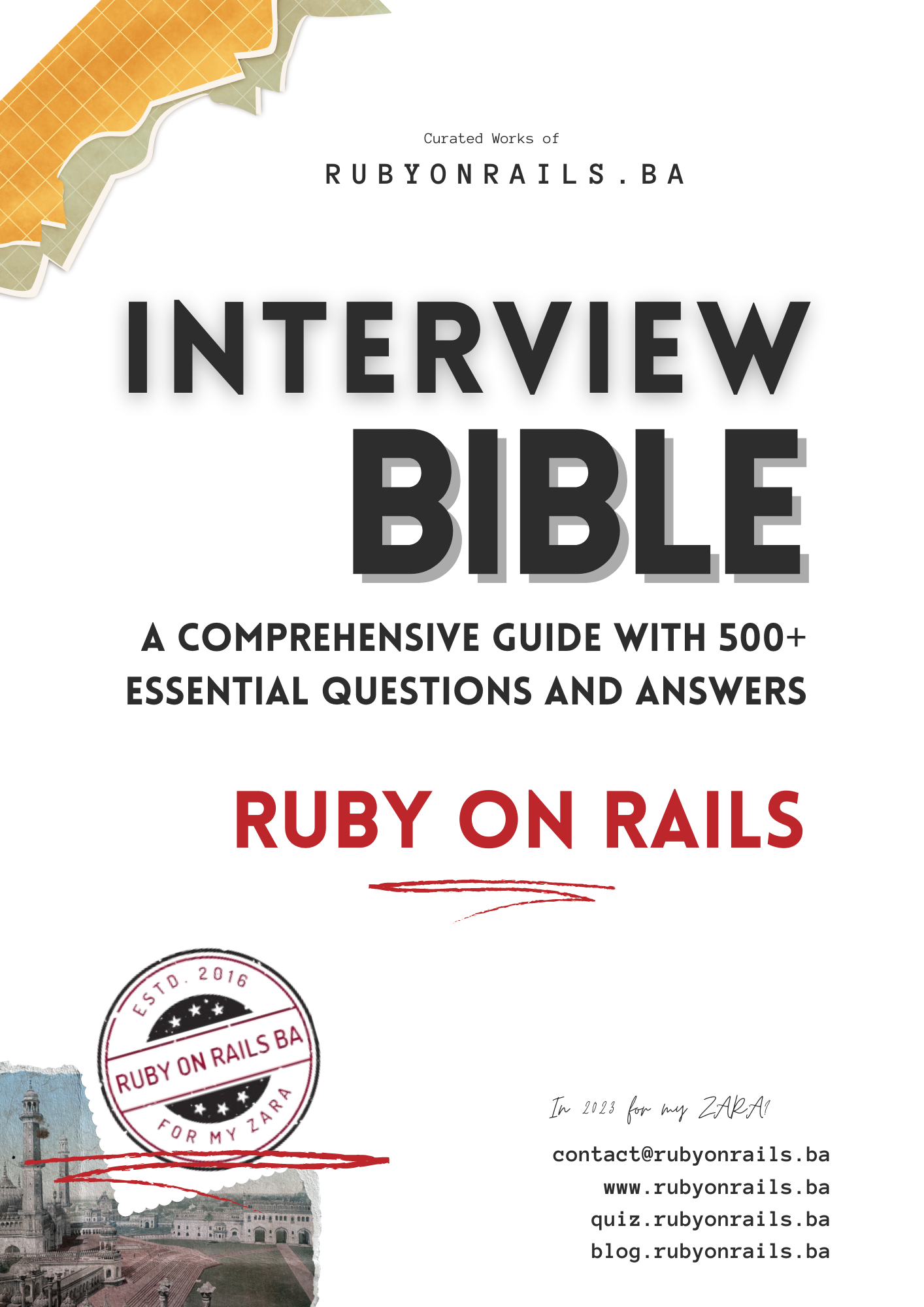
The React JS Interview Handbook - Your Ultimate Guide to Interview Success
Are you someone who is looking for a job in the field of React JS? Or, are you an interviewer searching for the best candidate to join your React JS team? Either way, the React JS Interview Handbook is here to help you!
The React JS Interview Handbook is an ultimate guide to prepare you for React JS interviews. It includes more than 120 questions with detailed answers and some code samples to help you understand the concepts better. Whether you are a beginner or an experienced React JS developer, this book is suitable for all levels.
Read more >>>

The JavaScript Interview Bible - A Comprehensive Guide with 1000+ Essential Questions and Answers!
As a JavaScript developer, you know how important it is to have a strong understanding of the language and its intricacies. And if you're looking to take your skills to the next level and land your dream job, then you need to ace your JavaScript interviews.
That's where "The JavaScript Interview BIBLE" comes in. This comprehensive guide is packed with over 1000 essential questions and answers that cover everything you need to know to nail your JavaScript interviews. But that's not all – "The JavaScript Interview BIBLE" also includes code samples, JavaScript trick questions, and sections on algorithms, microservices, deprecations, syntax, concurrency, memory management, testing, popular frameworks, and even JavaScript jokes!
Read more >>>

Compete with Friends on Quiz.rubyonrails.ba
Another standout feature of quiz.rubyonrails.ba is the knowledge battle, where members can challenge their friends to a battle of wits. Members can finish their own question sets and send them to their friends via email. After completing the quiz, members can compare their results and see who comes out on top.
Read more >>>

All the Rails Console Commands You Need to Know
One of the most powerful tools in a Rails developer's toolkit is the Rails console. The console allows developers to interact with their Rails application's code and data directly from the command line, providing a quick and convenient way to test and debug their code.
In this article, we'll take a deep dive into the Rails console and explore an exhaustive list of all the console commands available to Rails developers. From basic querying and data manipulation to more advanced database management and optimization techniques, we'll cover everything you need to know to take full advantage of the Rails console and make your development process faster and more efficient. Whether you're a seasoned Rails developer or just starting out, this article will be an essential reference for your Rails console workflow.
Read more >>>

The Ruby on Rails Interview Bible - A Comprehensive Guide with 500+ Essential Questions and Answers!
So whether you're a Ruby on Rails developer preparing for an interview, an interviewer looking for a comprehensive guide to assess candidates, or a junior developer or contractor looking to refresh your knowledge, The Ruby on Rails Interview Bible is the ultimate resource for you. Order your copy today and take the first step towards mastering Ruby on Rails development.
With 500+ essential questions and answers, this e-book serves as a comprehensive handbook that interviewers and HR professionals can use to test candidates and assess their knowledge of Ruby on Rails development.
So what are you waiting for? Order your copy of The Ruby on Rails Interview Bible today and take the first step towards acing your next interview and landing your dream job.
Read more >>>
.png)
Its 2023 and hiring interviews are still messy. Can we as (Ruby On Rails) community make them better?
In the video of my talk at the Ruby On Rails Global Summit 2023, I delve into the current state of hiring and interviewing practices. I examine whether the problems that have long plagued these processes are still prevalent today, and offer insights into how we can improve them. I draw on my years of experience in the tech industry to provide practical tips and strategies for companies and job seekers alike. If you're interested in staying ahead of the curve when it comes to hiring and interviewing, my talk is definitely worth a watch.
Read more >>>

10 Essential Skills and Qualities of a 10x Developer
The term "10x developer" is often used to describe a developer who is exceptionally productive and efficient, able to produce high-quality code in a fraction of the time it would take an average developer. The term was first coined by software engineer and author Steve McConnell in his book "Code Complete," where he estimated that the most productive developers can be as much as 10 times more productive than their less effective peers.
Read more >>>

100 Ruby on Rails Interview Questions: Answers and Tips for Developers
As a popular web development framework, Ruby on Rails is a key skillset for many developers and hiring managers. If you're looking to hire a Rails developer or prepare for a Rails developer interview, it's important to have a solid understanding of the key concepts, best practices, and potential interview questions that may arise. That's why we've put together this comprehensive resource featuring 100 Ruby on Rails interview questions, along with correct answers. Whether you're a developer looking to brush up on your Rails skills or a hiring manager looking to find the best talent, this guide is a valuable tool for anyone involved in the Rails development process.
Read more >>>

Ruby Programming Language and Its Most Used Set of Algorithms
In this blog post, we explored some of the most commonly used algorithms and techniques in the Ruby programming language. We covered sort, search, graph algorithms such as depth-first search, breadth-first search, and Dijkstra's algorithm, and string manipulation algorithms such as palindrome detection, string permutation generation, and longest common substring finding. With its concise syntax and built-in data structures, Ruby makes it easy to implement these algorithms for a wide range of applications.
Read more >>>

Building Reusable Components with Ruby Rack: A Practical Guide to Middleware in Rails
Why Use Ruby Rack? To implement middleware in a Rails app, create a new class in the app/middleware directory. The class should implement the call method, which takes the env parameter representing the current request environment. The call method should return an HTTP response.
Read more >>>
Call for members!
Content writters welcomed to become part of our blog.
Lets make community better!
Become part of community!
Contact Us HERE
Contact Us HERE
Top articles
🔴 Top 20 Ruby on Rails Interview Questions and Answers fo... >>>
What's the Fucking Clean Code??? >>>
🧠 Top 20 JavaScript Interview Questions and Answers for 2025 >>>
20 Years as a Software Developer – My Journey >>>
🐍 Top 20 Python Interview Questions and Answers for 2025 >>>



